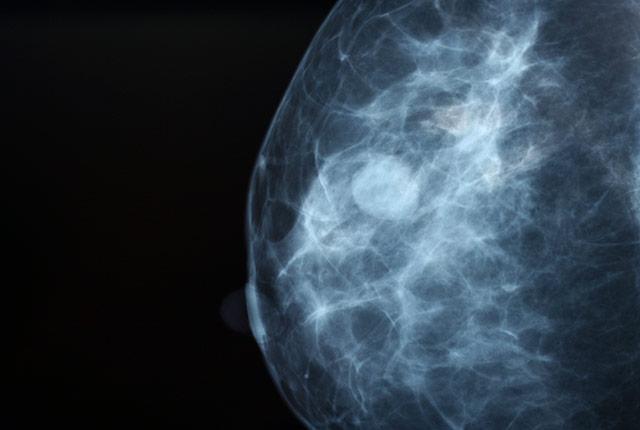Millions of US women don’t have access to maternity care, report warns
More than 2.3 million women of reproductive age don’t have access to birthing facilities or obstetric doctors, report says

More than a third of US counties do not have a single medical birthing facility or the services of an obstetric clinician, causing health advocates to warn about the dangers of “maternity care deserts”, a new report says. The report, issued by March of Dimes, an infant health non-profit, and published on Tuesday, found that 35.1% of US counties are what the group calls maternity care deserts, meaning there are no specialist medical services available to provide care. These 1,104 counties are home to more than 2.3 million women of reproductive age, the report states, and in these counties in 2022, women gave birth to more than 150,000 babies. Guardian.
Opinion: Mpox is coming back deadlier than before. The U.S. must respond now
… All these factors make it even more important for Western counties to dedicate resources to bolster the health-care infrastructure of Congo and other hard-hit countries. Failure to do so means that a new, deadlier mpox variant will inevitably make its way within our borders, costing far more resources — and preventable suffering — down the line. WashPost.
‘Very High’ COVID-19 Levels Reported in Half The US, CDC
The most recent data from the Centers for Disease Control and Prevention (CDC) shows that last month nearly half of the United States have reported “very high” levels of COVID-19 activity. As concerns with COVID have waned across the U.S., the CDC has come to rely on wastewater data to track the virus, which often lags several weeks behind current case counts. USAToday.
COVID-19: New XEC Strain ‘Just Getting Started’ Sparks Concern Amid Summer Wave of US Cases
A newly discovered more contagious COVID-19 strain spreading rapidly through Europe is sparking concerns among health authorities around the globe as the United States is experiencing its largest wave of cases in over two years. XEC, which was first identified in Germany, may eventually overtake the current dominant subvariant, KP.3.1.1, which is currently most common in the United States, accounting for about 42 percent of cases nationally according to data by the Centers for Disease Control and Prevention (CDC) released on Saturday, Aug. 31. MSN.
Hospitals With COVID Surges Had Higher Death Rates
About one in five U.S. COVID deaths during the Delta wave were because of overwhelmed hospital capacity, an analysis of data from 620 facilities showed. The findings in Annals of Internal Medicine reinforce the need to minimize surges of patients during future health emergencies or staffing crises. Axios.
Covid lockdowns prematurely aged girls’ brains more than boys’, study finds
MRI scans found girls’ brains appeared 4.2 years older than expected after lockdowns, compared with 1.4 years for boys.
…Kuhl believes the difference reflects girls’ greater dependence on social groups and interactions. “Girls chat endlessly and share their emotions,” she said. “They are much more dependent [than boys] on the social scene for their wellbeing and for their healthy neural, physical and emotional development.” Guardian.

Mammogram Patients Will Soon Have to Be Told About Their Breast Density. Here’s What to Know
Mammography facilities will soon have to notify patients about the density of their breasts, a step aimed at improving early detection of breast cancer. The new rule, which goes into effect Tuesday, was part of updated mammography regulations outlined by the U.S. Food and Drug Administration last year. While similar laws have already been enacted in many states, including Colorado and Minnesota, this is the first nationwide regulation. CBS.
Almost 50 Million Americans Have Had an Obamacare Plan Since 2014
The Biden administration released data showing roughly one in seven U.S. residents had been covered by the Affordable Care Act at some point over the past decade.
… Since President Biden took office, more than 18 million Americans have enrolled in marketplace plans for the first time, federal officials said. In a record, roughly 21 million people signed up for one this year, a trend that health policy experts have largely attributed to major subsidies that have lowered premiums for many Americans purchasing plans. NYT.

The Chatbot Will See You Now
Americans are already turning to A.I. for health information in large numbers, new research suggests.
… About one in six adults — and about a quarter of adults younger than 30 — use chatbots to find medical advice and information at least once a month, according to a recent survey from KFF, a nonprofit health policy research organization. Supporters hope A.I. will empower patients by giving them more comprehensive medical explanations than a simple Google search might. “Google gives you access to information. A.I. gives access to clinical thought,” said Dave deBronkart, a patient advocate and blogger.NYT.
Extreme Heat Is Linked to Pregnancy Complications, Including Stillbirths And Miscarriages — And The Risk Is Growing
Our warming planet is putting those who are pregnant at higher risk — and the impacts go far beyond heat-related illnesses. Research shows that along with the dangers presented to the general population, extreme heat puts pregnant people — and their unborn fetuses — at risk of life-threatening conditions. During pregnancy, expectant moms are more vulnerable to viruses and environmental conditions. And one of the threats comes from tiny insects: mosquitoes that can carry a handful of diseases. CBS.
Women Settle Lawsuits After Yale Fertility Nurse Switched Painkiller for Saline
Dozens of women who say they suffered excruciating pain at a Yale University fertility clinic because a nurse stole fentanyl for her own use and replaced it with saline have settled their lawsuits against the Ivy League school. Patients and their lawyers announced the settlements Monday in New Haven, Connecticut, where Yale is based. Details of the agreements were not released, but lawyers said they included significant financial settlements. AP.
Pathogenic microbes blown vast distances by winds, scientists discover
Living microbes that cause disease in humans and host antibiotic-resistance genes carried 1,200 miles
… The study showed the microbes hitched a 1,200-mile (2,000km) ride on dust particles blown from farm fields in north-eastern China to Japan. Similar patterns of winds exist around the world. More than 300 types of bacteria and about 260 types of fungi were found in the samples collected over Tokyo. Other microbes not yet known to science are thought to be present. Guardian.
What to Know About the Mercury in Your Dental Fillings
The European Union banned mercury amalgam fillings to protect the environment. Should you worry about protecting your health, too?
… In 2019, the Food and Drug Administration published a literature review that assessed more than 100 mercury studies. The agency concluded that available research did not suggest that trace amounts of mercury exposure from dental fillings posed health risks to the general population. But it added that the existing research “points to uncertainties” for some people including pregnant or nursing women, young children and a few other groups. NYT.
Hopeful News for Users of One A.D.H.D. Drug
The D.E.A. is increasing its quota for Vyvanse as patients still struggle to fill prescriptions.
… Vyvanse is an amphetamine that has been approved for use in children and adults with A.D.H.D. and has become commonly prescribed after the generic version was introduced last year. According to the D.E.A., the latest data shows that demand for the drug has been rising globally. But right now every manufacturer of generic Vyvanse listed on the Food and Drug Administration website is experiencing a shortage. NYT.
High toxin levels are illegal in public water. But not for Americans using private wells.
An estimated 43 million Americans get water from wells they own. Should government require them to test and treat their own water?
… In lieu of any national laws, some states and municipalities across the country have issued their own regulations. A February study from the Journal of Exposure Science & Environmental Epidemiology found 23 states have adopted requirements for water quality testing of private wells. But those requirements vary widely in scope, and only 10 states have laws that require notifying well owners about a potential contamination, the study found. WashPost.
Apple Will Start Selling AirPods with Built-In Hearing Aids
Apple said Monday that a version of its latest AirPods earbuds will come with built-in hearing aids, which it says would help more than 1 billion people globally. The feature on the AirPods Pro, which Apple describes as equivalent to an over-the-counter hearing aid, is designed for users with mild to moderate hearing loss. After users take hearing tests on iPhones or iPads running iOS 18, their AirPods will make “personalized dynamic adjustments” to allow them to properly hear their immediate listening environments, with sounds boosted to prescribed levels in real time. NBC.


